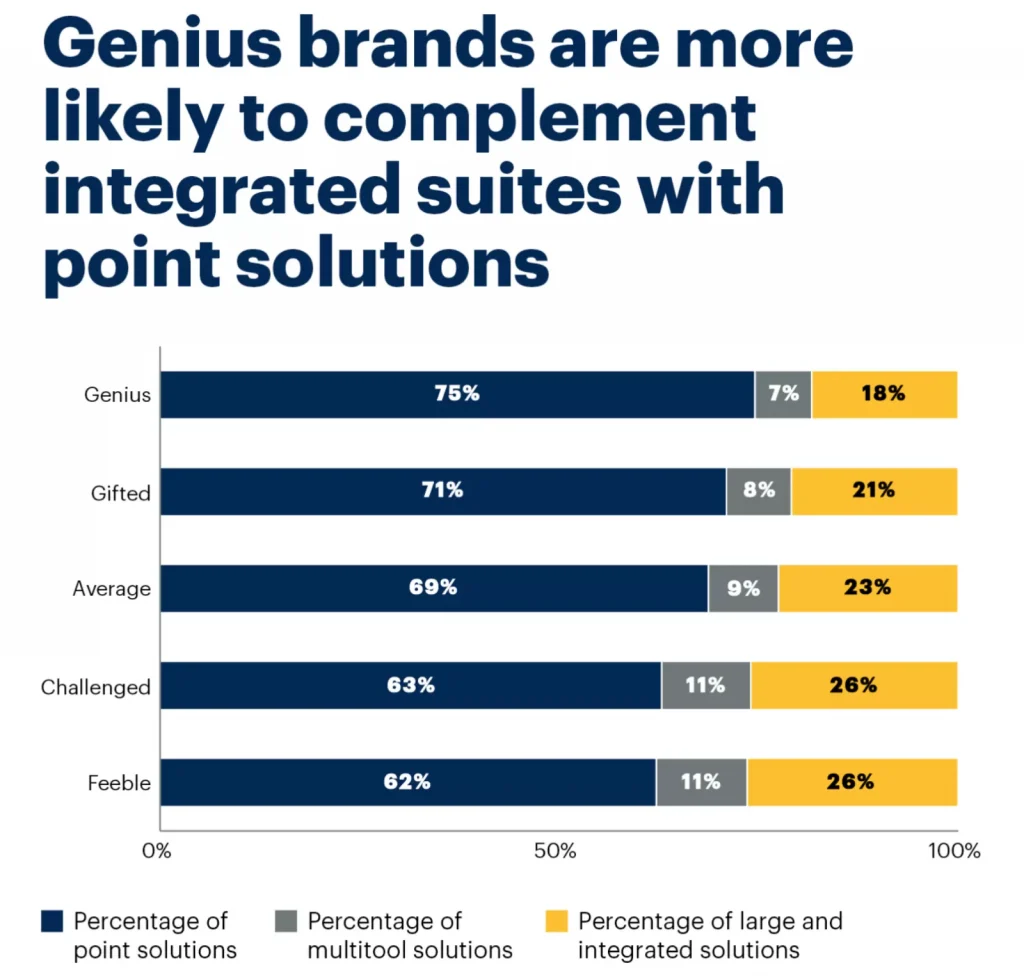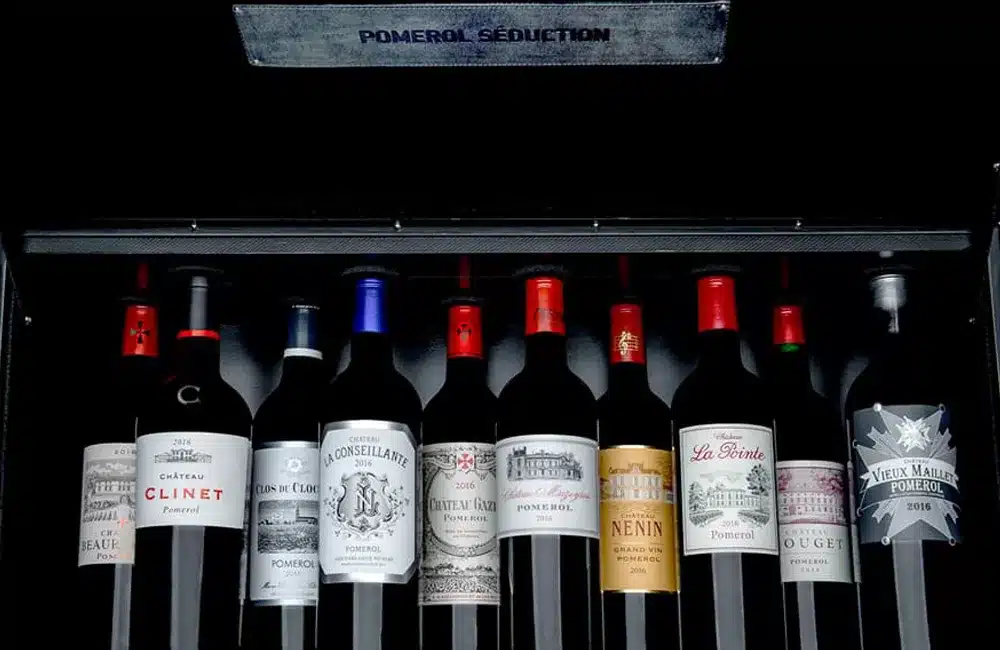Digitally savvy brands invest in combinations of key tech solutions to ensure that their martech drives business value.
In a recession, many marketers cut back sharply on many expenses —except for their spending on technology. Investments in marketing technology still account for a sizable portion of marketing budgets. Yet brands utilize only 58% of their martech stack’s capabilities, according to Gartner research.
The disconnect between technology adoption and return on investment is a persistent challenge for digital marketing leaders. Taking cues from high-performing brands (Genius brands) can help drive greater martech utilisation. Genius brands rank highest on the Gartner Digital IQ Index (DIQ), which scores more than 2,000 brands on four digital competency dimensions: Site, digital marketing channels, social media and path to purchase. Based on its score, each brand is classified as Genius, Gifted, Average, Challenged or Feeble.
As digital marketing strategies grow and mature, leading brands rely on a mix of products. “Leverage product combinations the way Genius brands often do,” says Benjamin Bloom, Senior Director Analyst, at Gartner. “Establish which combinations are most relevant to your business and align complementary technologies to maximise capabilities and minimise waste.”
Complement integrated-suite technology with point solutions
Many large vendors offer integrated solutions to meet a multitude of marketing capabilities. Genius brands do leverage these products, but point solutions — software designed to solve specific business problems — account for nearly three-quarters of their martech stacks. By comparison, less digitally proficient brands install more integrated products from large vendors at a higher rate. Acquiring all of the essential components of a Martech stack from a single vendor is uncommon: Just 29% of brands have more than one product from a single vendor.

Manage martech complexity for optimal performance
Gartner’s research finds no correlation between the amount of marketing technology investment and its effectiveness. Not every brand achieves its outcomes in ways that the number of technology solutions alone can explain. For example, about 20% of brands in the Gartner study have swelled in martech complexity yet failed to add sufficient ROI. Just 18% of brands display business performance that correlates with their stacks’ complexity.
To overcome the risk of martech complexity, build competencies around technology, content and workflow that enable technology to efficiently support marketing strategy. Assess capabilities to determine if sufficient depth in talent, training and organization is available to utilise the products in your stack.
Combine marketing technologies to extend capabilities
Genius brands extend their technology with complementary tools and build capabilities that advance their maturity. This combination of tools and work processes may explain the improved returns of brands with greater digital intelligence. High-performing brands are more likely to invest in technologies such as analytics and business intelligence, data science, mobile marketing platforms, demand-side platforms and digital asset management.
No single technology product is a key to top-performing martech. Instead, brands with high digital intelligence and complex martech stacks combine several linchpin technologies for analytics, data management, advertising, hyper-personalisation and multichannel marketing.





